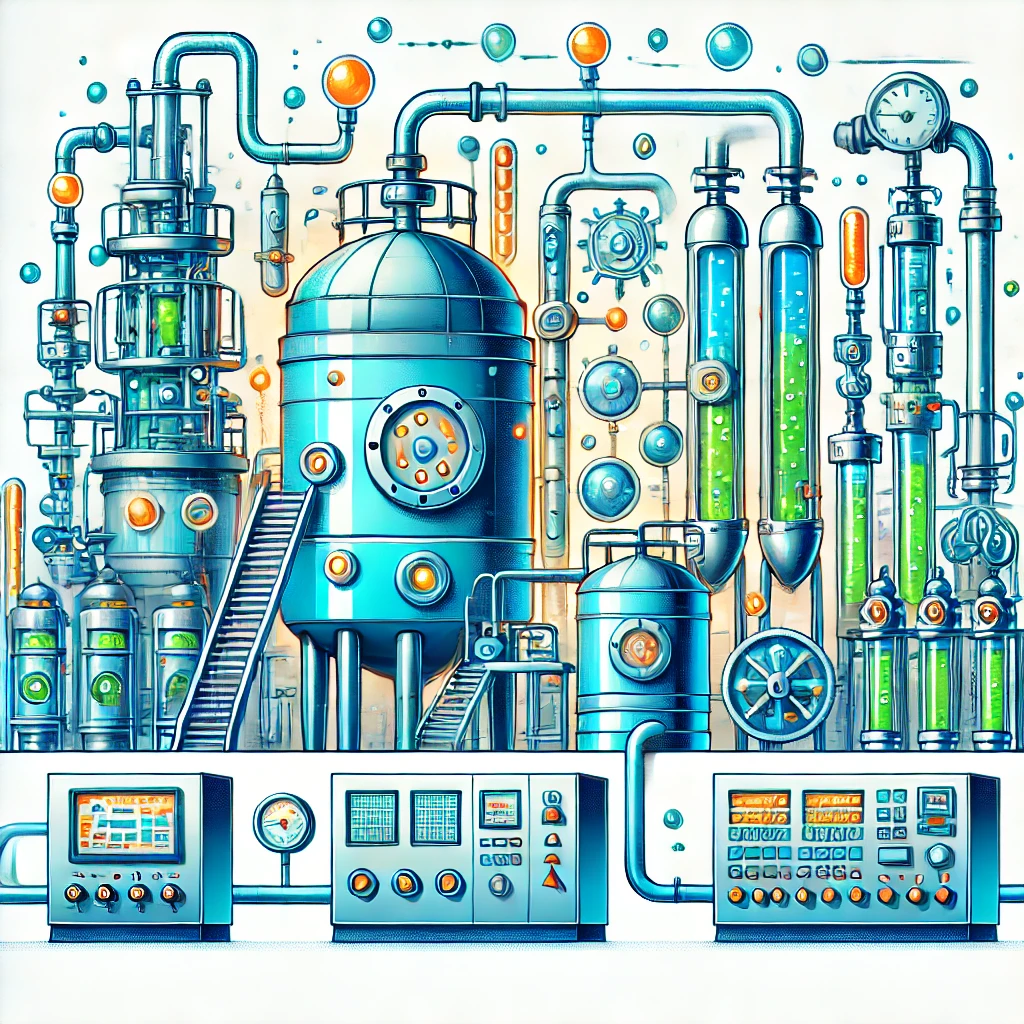
Industrial Chemical Bioprocessing in Industrial Biotechnology
Transforming Industry through Bioprocess Innovation
Skills you will gain:
This comprehensive program delves into the intersection of chemical engineering and biotechnology, emphasizing the application of bioprocessing in industrial settings. It covers a wide range of topics, including microbial and enzyme biocatalysis, fermentation technology, downstream processing, and bioprocess optimization. Through a blend of theoretical knowledge and practical applications, participants will gain insights into the development and implementation of bioprocesses that enhance productivity, efficiency, and sustainability in various industrial sectors.
Aim: The aim of this program is to provide participants with a thorough understanding of industrial chemical bioprocessing, enabling them to develop and implement innovative biotechnological solutions in industrial applications. The program seeks to bridge the gap between academic knowledge and industrial practice, fostering a new generation of skilled professionals capable of driving biotechnological advancements.
Program Objectives:
- To impart a deep understanding of the principles and techniques of industrial chemical bioprocessing.
- To equip participants with the skills needed to design, optimize, and scale-up bioprocesses for industrial applications.
- To explore the latest advancements and trends in industrial biotechnology.
- To promote sustainable practices and green technologies in bioprocessing.
- To provide hands-on experience through laboratory sessions, case studies, and industry projects.
What you will learn?
Month 1: Foundations and Principles
-
- Week 1: Introduction to Industrial Biotechnology
- History and Evolution of Biotechnology
- Key Milestones in Industrial Biotechnology
- Overview of Bioprocessing and its Importance
- Week 2: Basics of Chemical Engineering in Biotechnology
- Fundamental Principles of Chemical Engineering
- Thermodynamics and Kinetics in Bioprocessing
- Mass and Energy Balances
- Week 3: Microbial and Enzyme Biocatalysis
- Microbial Metabolism and Growth Kinetics
- Enzyme Mechanisms and Kinetics
- Applications of Microbial and Enzyme Biocatalysis
- Week 4: Fermentation Technology
- Types of Fermentation Processes
- Design and Operation of Fermenters
- Scale-up and Optimization of Fermentation Processes
Month 2: Advanced Techniques and Applications
-
- Week 5: Downstream Processing
- Principles of Downstream Processing
- Separation Techniques (Filtration, Centrifugation, Chromatography)
- Purification and Product Recovery
- Week 6: Bioprocess Optimization and Control
- Process Monitoring and Control Strategies
- Optimization Techniques for Bioprocesses
- Case Studies in Bioprocess Optimization
- Week 7: Sustainable Bioprocessing
- Green Technologies in Bioprocessing
- Waste Management and Bioprocess Sustainability
- Life Cycle Assessment in Industrial Biotechnology
- Week 8: Industrial Applications of Bioprocessing
- Bioprocessing in Pharmaceutical Industry
- Bioprocessing in Food and Beverage Industry
- Bioprocessing in Biofuels and Biochemicals
Month 3: Innovations, Trends, and Future Directions
-
- Week 9: Emerging Trends in Industrial Biotechnology
- Advances in Synthetic Biology
- Metabolic Engineering and Pathway Design
- Innovations in Bioprocessing Equipment and Technologies
- Week 10: Regulatory and Ethical Aspects
- Regulatory Frameworks in Biotechnology
- Quality Assurance and Control in Bioprocessing
- Ethical Considerations in Industrial Biotechnology
- Week 11: Case Studies and Industry Projects
- Analysis of Successful Industrial Bioprocessing Projects
- Group Project: Design and Optimization of a Bioprocess
- Industry Expert Lectures and Q&A Sessions
- Week 12: Future Directions and Career Opportunities
- Future Trends in Industrial Biotechnology
- Career Paths and Opportunities in Bioprocessing
- Final Presentations and Program Review
Intended For :
- Graduates in biotechnology, chemical engineering, biochemistry, or related fields.
- Professionals working in the biotechnology or chemical processing industries seeking to enhance their skills.
- Researchers and academicians interested in industrial bioprocessing.
- Final-year students in relevant disciplines aspiring to build a career in industrial biotechnology.
Career Supporting Skills
